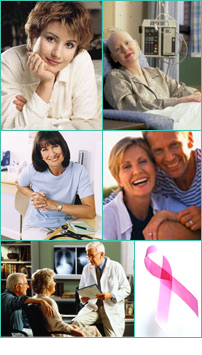Yes. With proper education and care, lymphedema can be avoided or, if it develops, kept well under control.
One of the most important things you can do is educate yourself about lymphedema and become familiar with its common symptoms. This way, if lymphedema develops, you will be better prepared to recognize it and seek appropriate treatment.
Skin care is, by far, your best defense against lymphedema. Your skin is your first line of defense against infection. Therefore, any skin problems ó burns, rashes, extreme dryness, bug bites, cuts, splinters ó can decrease your skinís ability to protect your body and increase your vulnerability.
Skin infections can come on quickly. If you develop a fever or rash or experience swelling, redness, or tenderness, let your doctor know as soon as possible. As with all aspects of your health, prevention is your best defense.
Here are some key guidelines for preventing or managing lymphedema:
Never ignore even the slightest increase of swelling in the arm, hand, fingers, neck or chest wall. Check with your doctor immediately.
Do not allow an injection, IV access or a blood drawing to be done in the affected arm(s). You many want to consider wearing a lymphedema Medic-alert bracelet.
If you have to have your blood pressure checked, make sure the nurse or healthcare worker takes the reading on the unaffected arm.
Always keep the affected or ďat-riskĒ arm clean and well-moisturized.
Avoid vigorous, repetitive movements against resistance (such as scrubbing, pushing, pulling) with the affected arm.
Avoid heavy lifting with the affected arm. Never lift more than 15 pounds with the affected arm for chores, work, or exercise.
Never carry heavy handbags or bags with over-the-shoulder straps.
Do not wear tight jewelry or elastic bands around affected fingers or arms.
Avoid extreme temperature changes when bathing and washing dishes.
Keep the arm protected from the sun with SPF 30 sunscreen.
Avoid any type of trauma (e.g.: bruising, cuts, sunburn or other burns, sports injuries, insect bites, cat scratches).
Apply antibiotic ointment (like Bactroban) to any insect bites or torn cuticles, as long as you are not allergic to the contents of the antibiotic ointment.
Wear gloves while doing housework, gardening, or any type of work that could result in even a minor injury to the hands or arms.
Wear oven mitts when handling hot dishes.
When you or your manicurist is manicuring your nails, avoid cutting your cuticles.
Use a thimble when you sew.
Exercise is important, but be sure to consult with your doctor beforehand. It is important not to over-tire an arm at risk. If your arm does become tired, be sure to lie down and elevate your arm. Some of the best exercises you can do include walking, swimming, light aerobics, bike riding, and yoga.
When traveling by airplane, patients with lymphedema and those at risk should wear a compression sleeve on the arm affected by swelling. Additional bandages may be required on a long flight. Increase fluid intake during a flight.
Patients with large breasts should wear light breast prostheses. Heavy prostheses may put too much pressure on the lymph nodes above the collar bone. Soft pads may have to be worn under the bra strap. Wear a well-fitted bra that is not too tight and that has no wire support.
Use an electric razor to remove hair from under your armpits. Make sure to change the blades frequently.
Maintain your ideal weight with a well-balanced, low sodium, high-fiber diet.
Donít smoke.
Avoid alcoholic beverages.
Avoid very hot baths, hot tubs, saunas and steam baths.
Donít apply heating pads or hot compresses to the arm, neck, or shoulder on the affected side.
Also, be cautious of other heat-producing treatments (such as ultrasound, whirlpool, fluidotherapy, or deep tissue massage) provided by physical, occupational, or massage therapists. Heat and vigorous massage encourage the body to send extra fluid into the compromised area.
|


